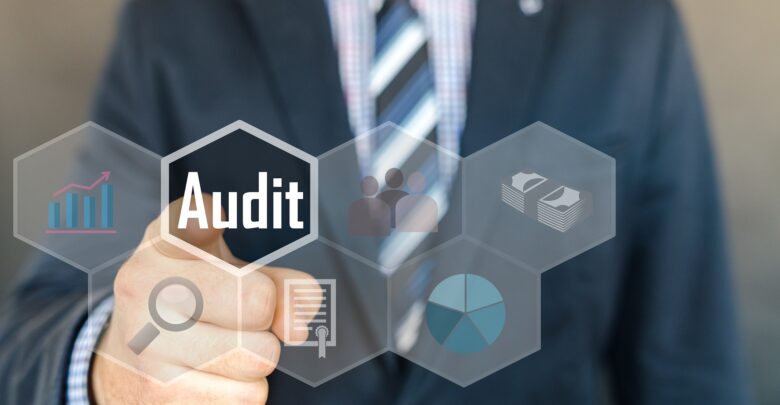What Is a Smart Contract Security Audit?

Introduction
The crypto industry has seen a lot of upgradation mainly because of the revived interest of people and financial enterprises in blockchain technology and decentralization. There was a time when no one really showed any sincerity towards both decentralization and blockchain technology and thought of these as a necessary means to meet one’s financial goals and desires. But both these technologies have provided people with many benefits over the years, and now they not only reflect on these technologies for their financial needs but are also investing tons of money just because they think that it is going to be extremely secure as blockchain technology is overseeing each and every aspect of it.
Decentralized applications, decentralized finance, smart contracts, and the issuance of many other crypto tokens have made it apparent that blockchain technology is here to stay and propel the financial world into new domains of security, efficiency, and interoperability.
If you have earlier dealt with the crypto market itself and know a thing or two about its working, then the chances are that you have already come across the idea of smart contracts; what these are? What they can do and more. A smart contract is a legally binding contract that is drafted digitally by blockchain technology between 2 or more interested parties.
It contains clauses and specific points of action regarding a particular event and is legally binding, as discussed earlier. This is orchestrated by blockchain technology and is immutable once the parties involved have given their consent to all the clauses mentioned within the contract. It is also autonomous, which means that it will be executed as per the discretion and consent of the parties involved by the blockchain system and the immutability of smart contract makes it an extremely secure mode of investment.
You can get into a smart contract with literary anybody; suppose you have to invest in a particular scheme but are reluctant because you don’t believe the party to whom you are going to have to give your investment. This isn’t a problem at all; all you need to do is drum up a smart contract between the intended party and set up clauses that include you giving them your investment in a timely fashion and them providing you with a return on your investment in a similar fashion.
If any of you back out of the contract or don’t fulfill the next milestone, the contact will stop right there and won’t proceed until the party who has backfired returns to its normal functioning, this is what makes smart contracts literally more secure than any conventional mode of finance.
Now that you have some idea about smart contracts, let’s dive into learning more about smart contract audits. This article is about it. This provides users or people who are interested in smart contract projects a deep analysis of all the smart contracts involved. These smart contracts help in safeguarding the funds and investments that have been orchestrated through them.
This is an additional measure of security to make sure that all parties are fulfilled equally and any transfer initiated is fulfilled in a timely manner. These audits double-check these smart contracts for any possible errors that could intermingle with its transaction validating abilities. This is because the transaction in question is not going to be reversed because all transactions taking place on a blockchain environment are final.
Therefore the idea of a smart contract security audit comes into place where auditors dissect each and every part of these smart contracts and develop a report which is then submitted to the team working on this smart contract so they can better edit the project according to the findings of the report. After all of that has been done, a final report will be given explaining any errors that might have been overlooked during the development phase of smart contracts and the work that has been done to address these errors in the first place.
Role of Smart Contract Audits in DeFi Space
It is just like proofreading your research paper before submitting it because you know that if you don’t proofread it perfectly, then they are going to be errors, and that might be reflected in the overall score you receive from that particular paper.
If this example didn’t work with you, then you might be interested in something technical; suppose you have developed an app, and before it could go live, a proper audit of the code is done to make sure that there are no errors and the app would perform fantastically for everyone out there. Now, if you don’t do this audit, then your app is going to be broken, and you are going to suffer in terms of views you get from the public regarding the app, and the overall future of your company could be in jeopardy.
The same thing applies here with any decentralized finance project, smart contract security audits are pretty common in the industry, and these let you know if a blockchain project is worth pursuing or not. The chances are that if you have worked with or have been a part of a blockchain project in the past, then might possible your decision to pursue that specific project might have been reflected by the smart contract code review that you received in the first place.
Almost every developer or blockchain enthusiast understands the importance of smart contract audits and but they never dive into this specific line of code because it is somewhat expensive and time-consuming. Despite all that, at the end of the day, it is the best thing that you can do to make sure that whatever project you are working on pans out exactly how you want it to be; other than that, it would provide you with more meaningful data which would eventually help you to make informed decisions in the end and not shooting arrows in the dark.
Definition of Smart Contract Audit
The definition is pretty simple, a smart contract audit examines the code of the smart contract in question at length and later on comments on errors found over the overall performance of the smart contract in question. Usually, GitHub is in charge of providing these audits, and these are written in the Solidity programming language; this is done to ensure that It is readable and cross-verifiable across various decentralized finance projects and domains.
Decentralized finance projects find the use of security audits more up class and in their favour because these projects are ultimately going to handle multiple transactions that are going to be worth millions of dollars or development of decentralized apps or some other thing that might come out of one such project and that is why running an audit beforehand is always in the best interest of not only the project itself but for the developers and investors involved.
On the other hand, if you are interested in finding out more about the audit process, it has four main steps that are as follows. Smart contracts after initial development are provided to the audit team for further examination or for the audit to begin. The auditing team examines the smart contracts provided to them and uses multiple analysis tools and programs in question for the sake of finding errors and other attributes within the project. The team then presents their findings to the project head so that they can communicate these effects to the developers and other members of the project who are involved in the development and engineering phases.
The project team then receives these errors or findings of the report and makes changes accordingly to the issues that were prevalent within the smart contract themselves. After all the changes, these are once again to be submitted to the audit team for a final report. This report shall reflect the effectiveness of changes made by the development team and if it solved the error or the shortcomings present with the smart contract in the first place.
If a smart contract after editing was well received, and there were no technical errors, then this concludes the audit for that specific smart contract; otherwise, the process goes on. The audit team finds errors, submits the report to the development team, the development team edits out these mistakes, and then sends the final smart contract to the team where it will be audited again, and the process continues until all errors are permanently fixed.
Many crypto users believe that smart contract audits have a classic significance when it comes to investing in decentralized finance projects because these provide them with a detailed analysis of their specific smart contract and what kind of things are broken in there, and how this can be fixed. This way, the investor finally knows where they are going to put their money and have a general idea of this investment opportunity that has been presented before them.
Certain industry leaders are working as audit providers, which makes their audits more valuable and intense as compared to the newbies or people who are just starting on the audit journey. Investors definitely value the audit of these industrial leaders more as compared to any other person who simply doesn’t have that much influence within the industry or is simply starting out on this journey right now.
Why do Decentralized Projects Require Smart Contract Audits?
As you know that a smart contract contains a lot of value when it comes to a certain blockchain project to whom it is tethered, and the amount of value that it has or is locked within the smart contract, therefore, is extremely relevant within crypto investors who entertained these as a source of investment opportunity but these are not the only people who are interested in smart contracts.
Because of the value of a smart contract, it is extremely popular among hackers and malicious attackers and therefore must be secure and foolproof from every known error; otherwise, what is the purpose of developing a smart contract if, in the long game, it is going to get hacked or manipulated?
Even if there is a minor error within the coding of the smart contract itself, then it means that this is a vulnerability that a malicious attacker can approach or expose, which would lead to huge sums of money being stolen and people being scammed out of their investment. There have been multiple hacks in the past regarding blockchain technology and smart contracts, and all of these were because of such small discrepancies not taken up for more rigorous testing and errors present within the code which led to these attacks.
As told earlier, a transaction conducted on blockchain premises is completely irreversible, which means that once you have transacted the money, it can’t be reversed; therefore, extreme caution and care need to be taken into account for the sake of making sure that nothing is out of the ordinary happens. Therefore it is important that you must keep the code of the smart contract intact and under surveillance at all times; even a slight change can wreak major havoc, which can’t be reversed.
It is not that the authorities or the crypto exchange that you use or the wallet that was committed would not help you to retrieve the funds; it is the highly intricate and secure nature of blockchain technology that makes it extremely complicated and difficult to retrieve funds which is why it is better to know this from the get-go and prevent such vulnerabilities as well.
How do Smart Contract Audits Work?
It is just like any other conventional form of audit but is more specific to the very niche that it covers or supports, which is the crypto market and blockchain technology. The process is fairly standard and uses the same approach, and the only difference that is going to be entertained here is the temperament of the auditor performing the other. The typical process for a smart contract audit is as follows.
First of all, the scope of the audit is to be determined. Therefore it is important to define the various specifications of the project and that of the smart contract, along with the intended purpose of the technology and the overall architecture that is going to support this transition. This kind of stuff is going to be extremely helpful to the audit team when it comes to determining the very goals of the project and especially when writing and using the code for the sake of the audit.
If the code of the audit is not up to the standards or is askew from the potential goal of the project, then the auditor can mark it as an error or a discrepancy that needs to be taken care of at once. After the architecture is received by the audit team, they go through it to determine the amount of work that needs to be done and based on that specific transition; they will issue an initial code to the dedicated centralized project in question. Later on, multiple tests are run to determine if any kind of vulnerability is present within the code of the smart contract or if the architecture is indeed intact?
The exact nature of the tests will change and be repurposed depending on the type of work that is being performed, the nature of the auditing team, and the analysis tools that are being brought into the transition.
Automated tests are carried out first, and if everything is green, which means if everything is up to the mark only, then manual testing is carried out; otherwise, the errors pertaining to the automated testing would be cleared first, and then the manual approach would be used. Later on, the first draft of the project is created, listing all the errors which were found, and this finding is provided back to the project team for their follow-up fixes and feedback on these aspects.
Once the team receives this final report, they quickly add on the feedback provided by the auditing team and carry out the fixes proposed, and after that, a final report is submitted back to the auditing team. The auditing team goes through the changes made by the development team and takes off anything that still comes out as out of context, but if everything is up to the standards of the project in question, then a final report is published by the auditing team.
Audit Report
As for the audit report, it is provided right after the end of the auditing process. The auditing report is all about transparency; therefore, the findings of the report must be published online and shared with people, whether these are potential investors who would want to invest in the project or end-users wanting to take up that specific smart contract. The audit report also comments on the present status of the issue as the project is given plenty of time to resolve the errors before a final report could be released.
Tokenhell produces content exposure for over 5,000 crypto companies and you can be one of them too! Contact at info@tokenhell.com if you have any questions. Cryptocurrencies are highly volatile, conduct your own research before making any investment decisions. Some of the posts on this website are guest posts or paid posts that are not written by Tokenhell authors (namely Crypto Cable , Sponsored Articles and Press Release content) and the views expressed in these types of posts do not reflect the views of this website. Tokenhell is not responsible for the content, accuracy, quality, advertising, products or any other content or banners (ad space) posted on the site. Read full terms and conditions / disclaimer.







